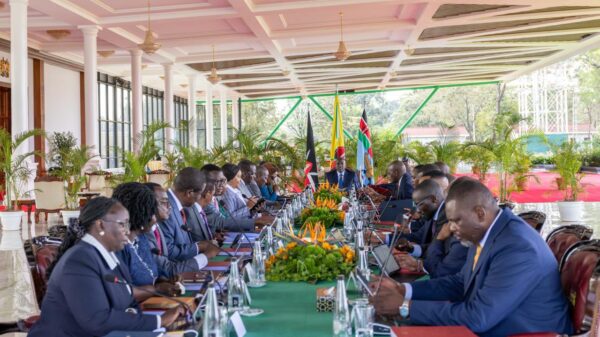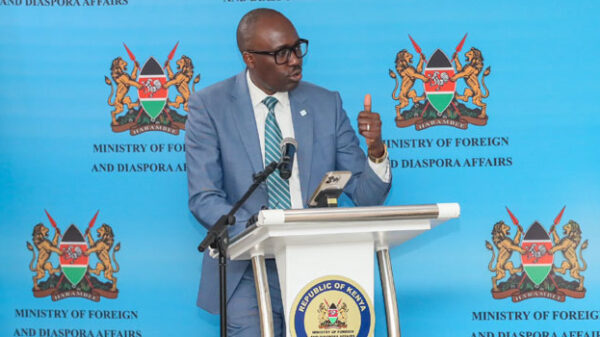NAIROBI, Kenya, Mar 20 — The government’s plan to fully operationalize all 24 newly gazetted sub-counties within the 2023/2024 financial year has stalled due to budget constraints, with only a few months left before the fiscal year ends in June.
The Ministry of Interior and National Administration is seeking an additional Sh3 billion to operationalize the remaining eight sub-counties, prioritizing regions facing persistent security threats.
Appearing before the National Assembly Committee on Security and National Administration, Principal Secretary Raymond Omollo emphasized the urgency of securing funds to deploy officers in volatile areas.
“We are nearing the end of the financial year, yet we haven’t made much progress due to budgetary constraints,” Omollo told the committee.
Funding Gaps and Treasury Shortfall
The National Treasury has allocated Sh616 million in the 2025/2026 Budget Policy Statement to support the expansion of administrative units. However, Omollo insists an additional Sh3 billion is required to clear the backlog and ensure all gazetted sub-counties become fully operational.
He revealed that the government had initially planned to secure funds through Supplementary Budget 2, with the Treasury committing Sh250 billion. However, the funds were not allocated when the budget was passed, delaying the process.
“We had discussions with the Treasury, and they committed Sh250 billion, but when the budget was passed, the funds were not allocated,” Omollo stated.
So far, 16 out of the 24 gazetted sub-counties have been operationalized despite financial challenges.
Structural Challenges and Overlapping Roles
Omollo also highlighted structural inefficiencies in the administration of sub-counties, citing cases where a Deputy County Commissioner (DCC) and an Assistant County Commissioner (ACC) oversee the same administrative unit, leading to overlapping responsibilities.
“We have instances where a single division also serves as a sub-county, with both a DCC and ACC overseeing the same area. We are working on resolving these anomalies,” he noted.
Lawmakers Decry Political Interference
Lawmakers criticized the haphazard creation and operationalization of sub-counties, accusing the government of political favoritism in the process.
Kisumu East MP Rosa Buyu condemned what she termed politically motivated decisions, arguing that some sub-counties are created in areas where they are not urgently needed, while regions facing serious administrative challenges remain neglected.
“The creation of sub-counties is governed by politics and discrimination. That’s why we have sub-counties where they are not needed, yet the areas that need them remain unaddressed,” Buyu stated.
Laikipia West MP Sarah Korere called for the review and possible de-gazettement of wrongly established administrative units.
“If sub-counties were gazetted wrongly, they should be reviewed and, if necessary, scrapped,” she said.
Saku MP Dido Rasso warned that the unequal distribution of administrative units is creating tensions and could lead to conflicts.
“Within counties, we see one constituency with three sub-counties while another has none. This imbalance must be addressed urgently,” Rasso said.
He also criticized the inconsistent prioritization in operationalizing sub-counties, pointing out that some units gazetted in 2013 and 2017 remain non-functional, while others gazetted in 2021 are already in operation.
New Policy Framework to Address Gaps
To tackle these issues, the Ministry has drafted a Cabinet Memorandum on Guidelines for the Creation of New Administrative Units, aimed at establishing a clear policy framework for the formation and funding of sub-counties.
“There is a gap in the creation of sub-counties, and a structured policy framework is necessary. We have a draft policy, which will be presented to Cabinet,” Omollo said.
He assured lawmakers that the policy framework will be finalized within two months, ensuring transparency and consistency in future administrative unit formations.
“The process of gazetting sub-counties has lacked clarity. We will fast-track this policy to address existing gaps,” he added.


















































